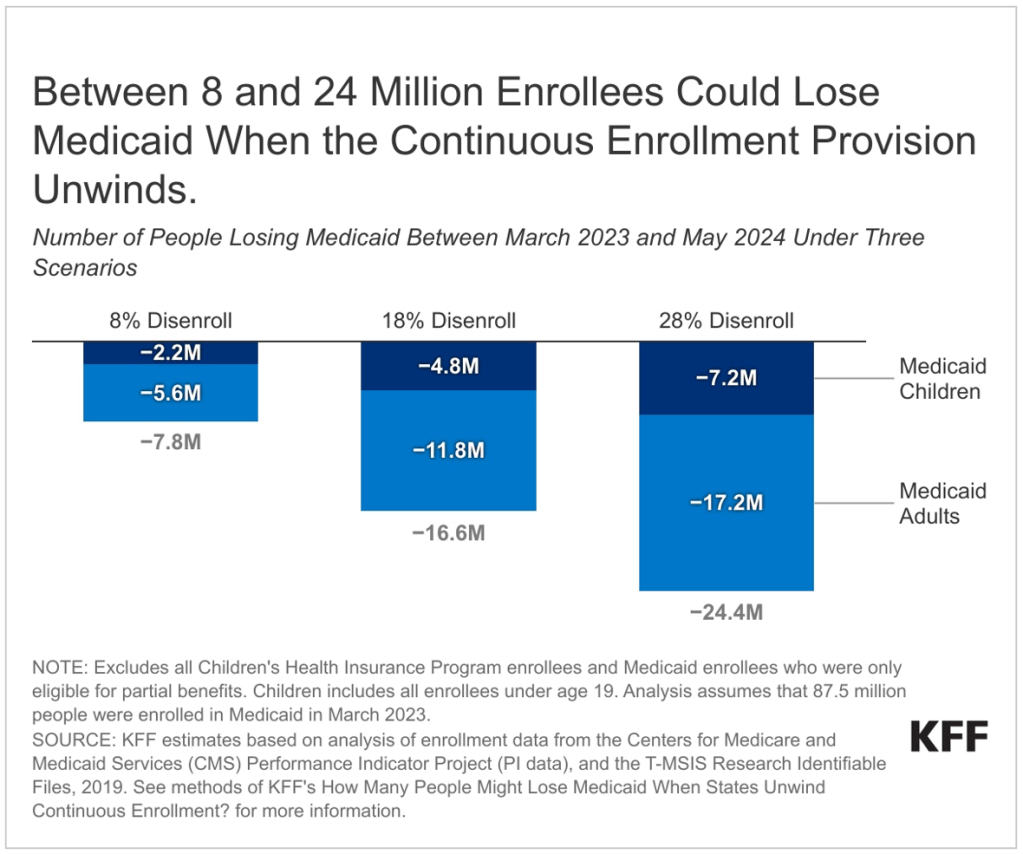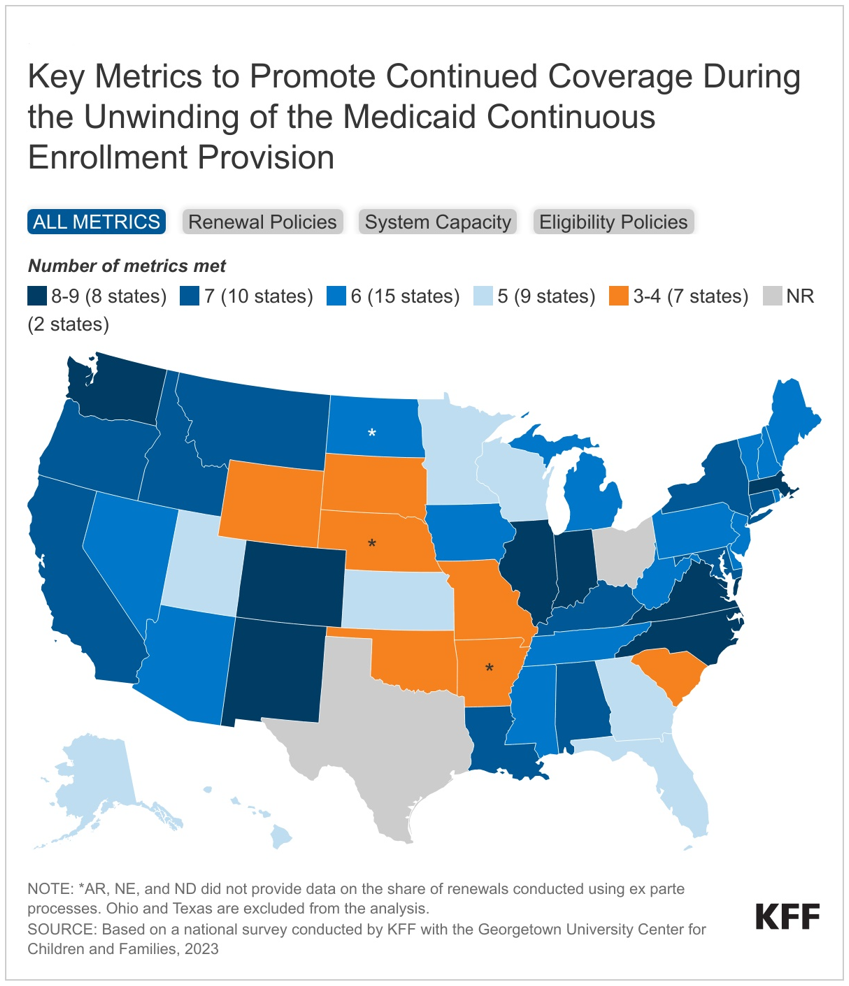
The independent source for health policy research, polling, and news.
Eight to 24 Million Could Lose Medicaid Coverage by May 2024 Due to the End of Pandemic-era Enrollment Protections
State Policies Will Help Shape How Many People Are Disenrolled, Including Some Who Remain Eligible
A new KFF analysis finds that between 8 and 24 million people across the U.S. could be disenrolled from Medicaid during the unwinding of the program’s continuous enrollment provision.
The estimates draw on data collected through KFF’s recent survey of state Medicaid and CHIP officials, conducted with the Georgetown University Center for Children and Families. The survey focused on states’ eligibility and enrollment policies, and their approaches to the unwinding of pandemic-era protections that prevented states from disenrolling people from Medicaid during the public health crisis. It included questions about how many people states estimate will lose Medicaid coverage in the months following the expiration of those protections in March.
Among states that responded to the survey, the midpoint estimate was that 18 percent would be disenrolled, suggesting that total Medicaid enrollment could fall by about 17 million people nationally during the unwinding, including 5 million children and 12 million adults. The new analysis offers three illustrative scenarios for how state-level Medicaid enrollment could decline between March 2023 and May 2024, ranging from 8 percent to 28 percent of total enrollees, which is plus or minus 10 percentage points from the midpoint and similar to the varying projections reported by states. While neither the lowest nor highest rate of disenrollment is an expected national outcome, the range may be helpful in examining what the variation could be across states.

The new findings are consistent with HHS estimates that as many as 15 million people will be disenrolled during the unwinding process, including 6.8 million who will likely still be eligible. (KFF’s analysis does not estimate how much of the Medicaid coverage loss would be among people who are still eligible versus those who are no longer eligible.)
The unwinding of the continuous enrollment provision will play out differently across the states based on policy choices states have made and variation in their administrative infrastructures. Some states have adopted multiple policies that are more likely to promote continued coverage among those who remain eligible. Other states have adopted fewer of these policies, which will likely lead to a larger number of people losing Medicaid coverage, including some who remain eligible.
According to another new KFF analysis, eight states meet at least eight of the nine key metrics that will support continued Medicaid coverage for those who remain eligible. Seven states meet only three or four of the metrics. The nine metrics come from the same survey of state Medicaid and CHIP officials and include things such as taking 12-14 months to complete all renewals, following up with enrollees who haven’t responded to a renewal request before terminating coverage, and completing 50 percent or more of renewals using ex parte, or automated, processes.

Among the 17 million children and adults who could be disenrolled from Medicaid, it remains uncertain how many will transition to other health coverage or become uninsured. A recent KFF analysis found that nearly two-thirds of people experienced a period of uninsurance after being disenrolled from Medicaid or the Children’s Health Insurance Program (CHIP).
The two new analyses, “How Many People Might Lose Medicaid When States Unwind Continuous Enrollment?” and “State Policy Choices Are Likely to Affect the Extent of Medicaid Enrollment Declines During the Unwinding Period,” as well as other data and analyses about the Medicaid unwinding, are available at kff.org.